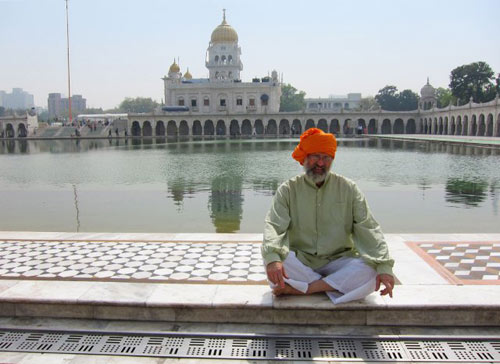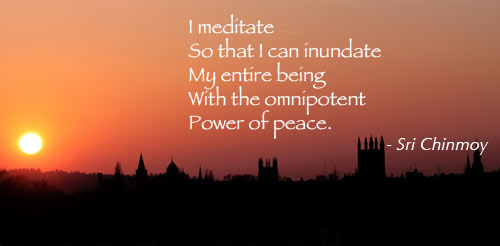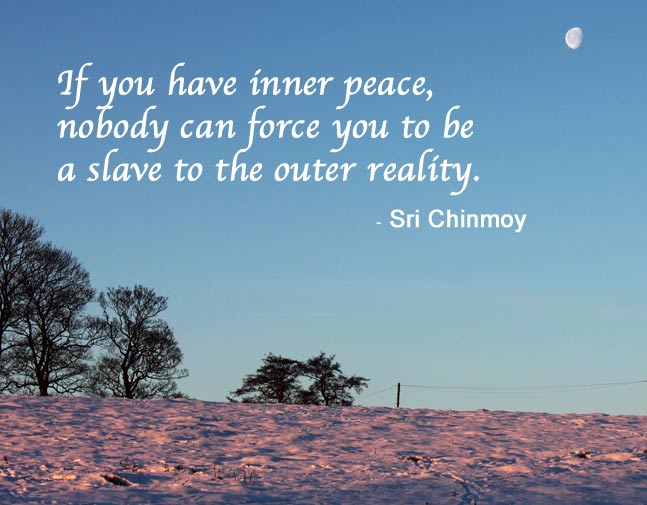There are many different ways to respond to the same situation. Often it is easy to consider ourselves as a victim – a victim of circumstances, a victim of other people, a victim of events. The alternative is to see not ourselves as a victim, but look upon life as a series of experiences. These are a few practical examples of how to look at the world in another light.
Criticism
Often we feel a victim when criticised. Why was person X unpleasant to us? Why have I been mercilessly criticised for no fault of my own?
There will always be people who say unkind things, but we don’t have to take it to heart. Rather than feel a victim, we can feel that they are just mistaken; and their words can not hurt our real self at all. If we can respond with forgiveness and detachment, we will be happy that we can rise above unkind words.
This might seem easier in theory than practise, but on a practical level, we should be very clear in our mind that this criticism is not warranted. Imagine the words and then cross them out; you could even try writing the negative thoughts down and then cross them out!
If we feel unfairly criticised, take the time to encourage some positive ideas about yourself. If people say you are incompetent, remember all the good things you have done.
It is then a choice, do we take their ill-chosen words and incorrect views to heart? or do we take it as an opportunity to remember who we really are? If we can hold onto a positive (and true) view about ourselves we won’t feel a victim. If anything the person who spreads gossip is the loser; negativity eventually will return to its source.
Why is it Always Me?
Another idea we may frequently feel, is why does it always happen to me? Why do I always have to do the difficult / unpleasant things.
For example, if we feel that it is always us who is cleaning up, there are two things to ask yourself.
1) Am I actually choosing to be the one who always cleans-up? Sometimes, we don’t like doing something, but when someone comes along to offer help, we reject it. Or perhaps someone would be happy to help if we ask, but we never get round to it. We may lack confidence to ask, or we may actually (unconsciously) like to play the role of martyr. There is part of us, who actually likes complaining to ourselves that WE have to be the one to do the hard work. You can think of this as an underlying thought. We don’t like always being the one to do the dirty work, but subconsciously we are actually choosing it.
…But who sincerely wants the elimination of suffering? We are all acting like camels. The camel eats cactus thorns until its mouth bleeds; then it goes and again eats thorns. In some way, consciously or unconsciously, the camel cherishes thorns. We human beings also cherish suffering, unconsciously or consciously. As long as we cherish suffering, there will always remain suffering on earth.
– Sri Chinmoy [1. Sri Chinmoy, A God-Lover’s Earth-Heaven-Life, Part 1, Agni Press, 1974. ]
On a practical level, visualise someone coming to help. Visualise asking your friends who are then glad to help. Make it clear to others what you are happy to do, but you would like others to also participate. Don’t feel guilty in asking, and don’t make people feel guilty for not guessing you needed help. Put it in a positive light.
“I would be very grateful, if you could help a little…”
When you put it like that, you appeal to people’s good nature and they may well do more than you ask. Sometimes all you really need to do is to ask!
2) Why not just enjoy doing the cleaning? If the above fails, there is another option. If we have to be the one who cleans up, why not just be happy for the opportunity to clean up? Sometimes we can clean and be really happy; it’s a nice simple job with satisfaction of creating a more beautiful environment. Alternatively, we can clean but spend all the time grumble that we have to do it. We really may have no choice to clean. But, we do have a choice whether to do it willingly and cheerfully or with ill-feeling.
The problem is you may be really determined not want to enjoy the cleaning. Part of you thinks it’s not unfair that I have to do that, and so because it’s unfair I’m going to be unhappy and let everyone else know too.
But, another way of looking at it is – it may be unfair, but that’s not a reason to make myself unhappy. If I can be happy doing this, it will make me stronger.
What ever we find ourselves doing it, try to be happy from the experience. Don’t make yourself feel miserable because there is a feeling of injustice.
Bad Luck
Everyone has bad luck and bad breaks. Some don’t give up at the first time. Just think of a famous person like Abraham Lincoln – not the most attractive person, he suffered a raft of bad luck, however, he never let his bad luck stop him. He just kept trying until he succeeded.
Related








